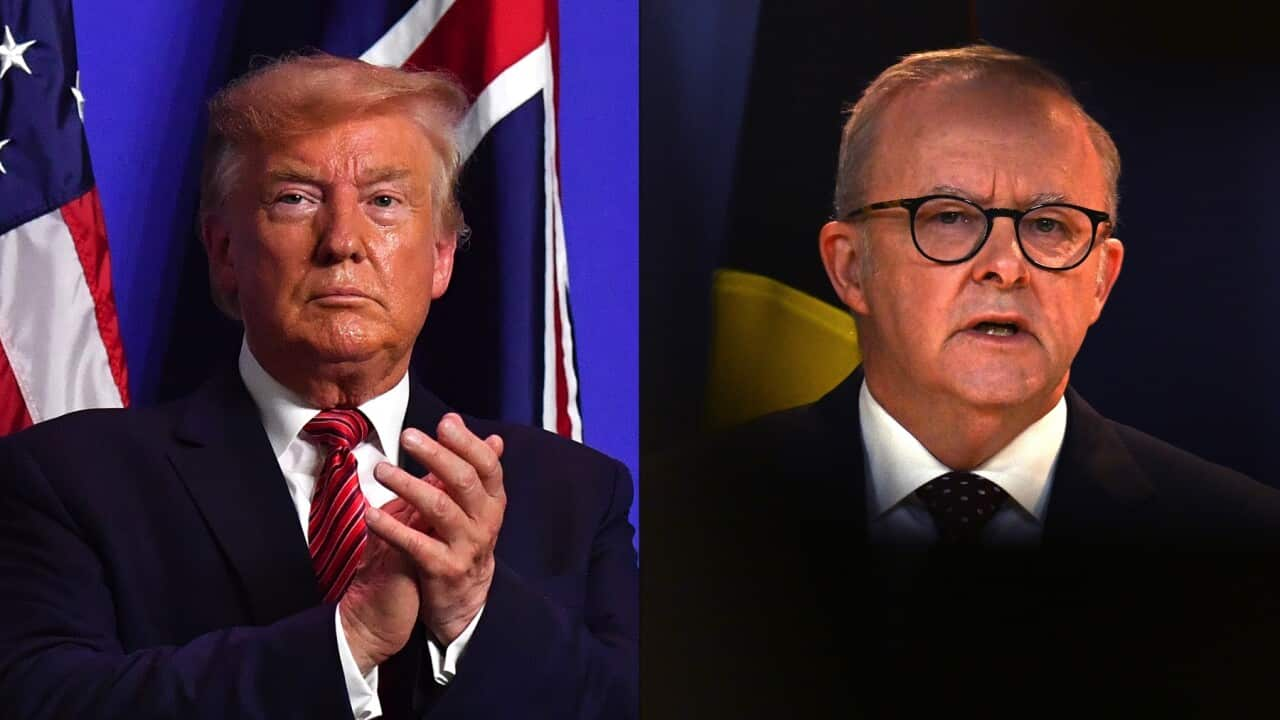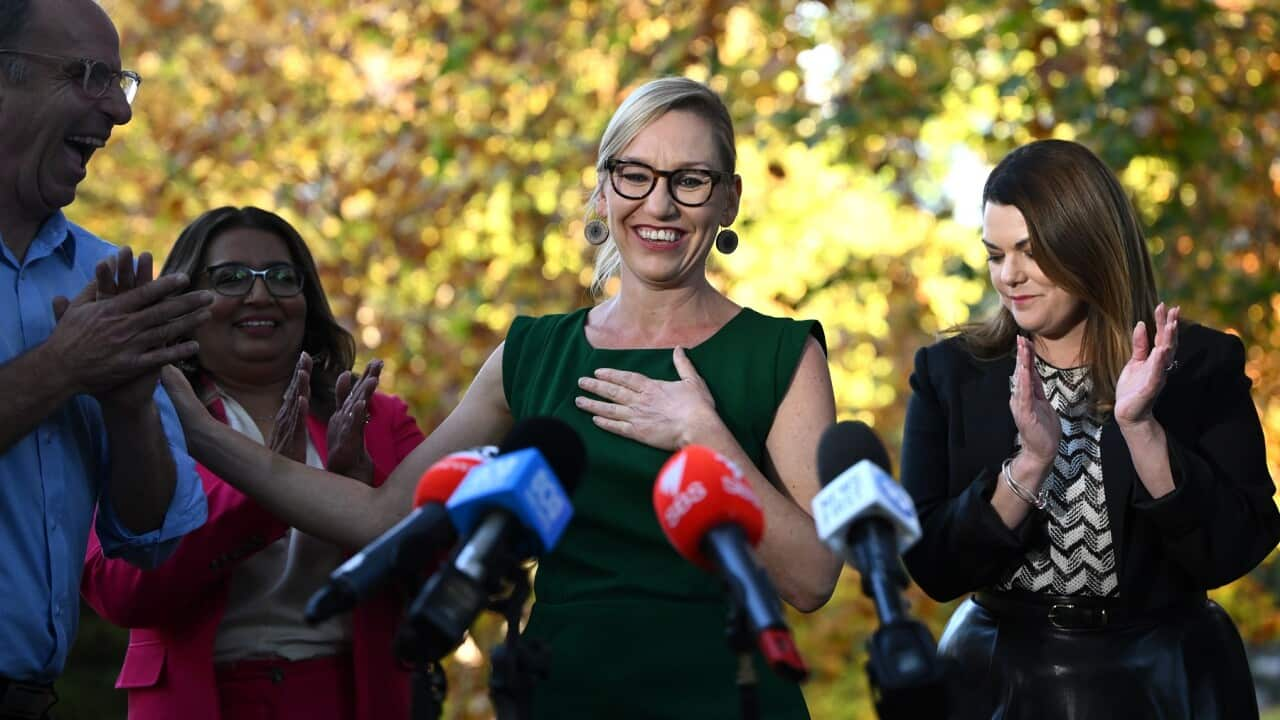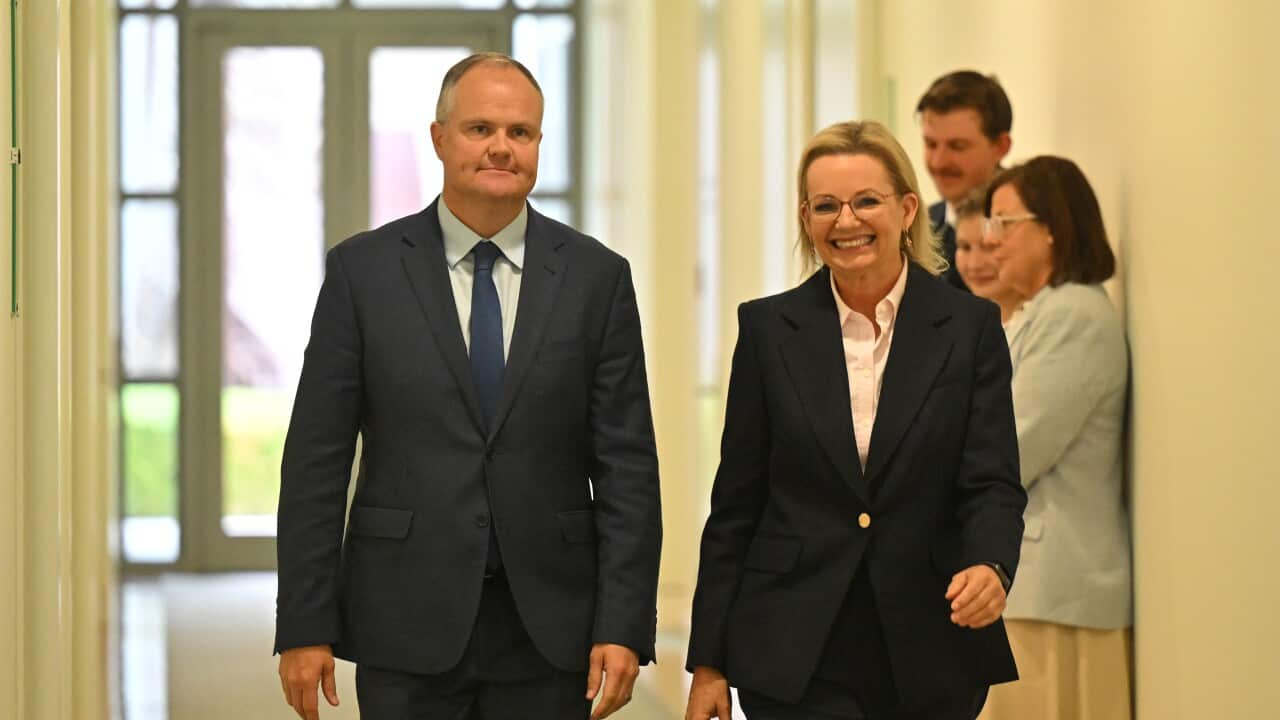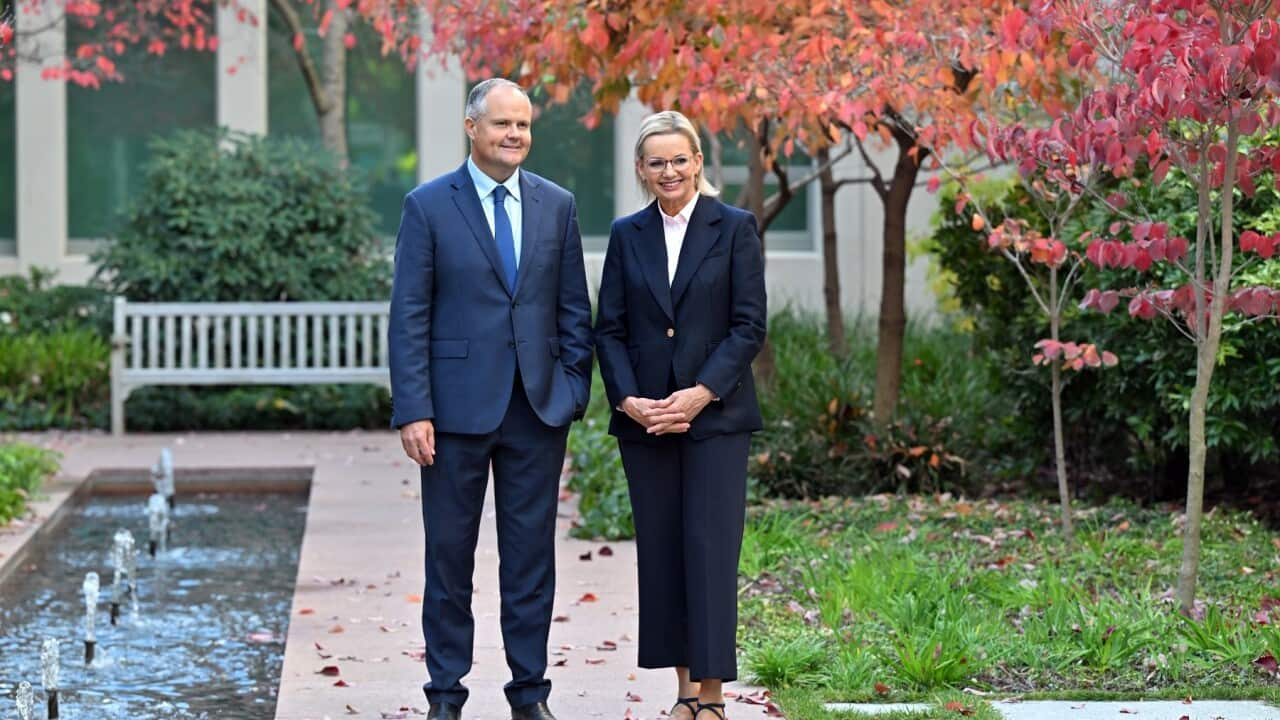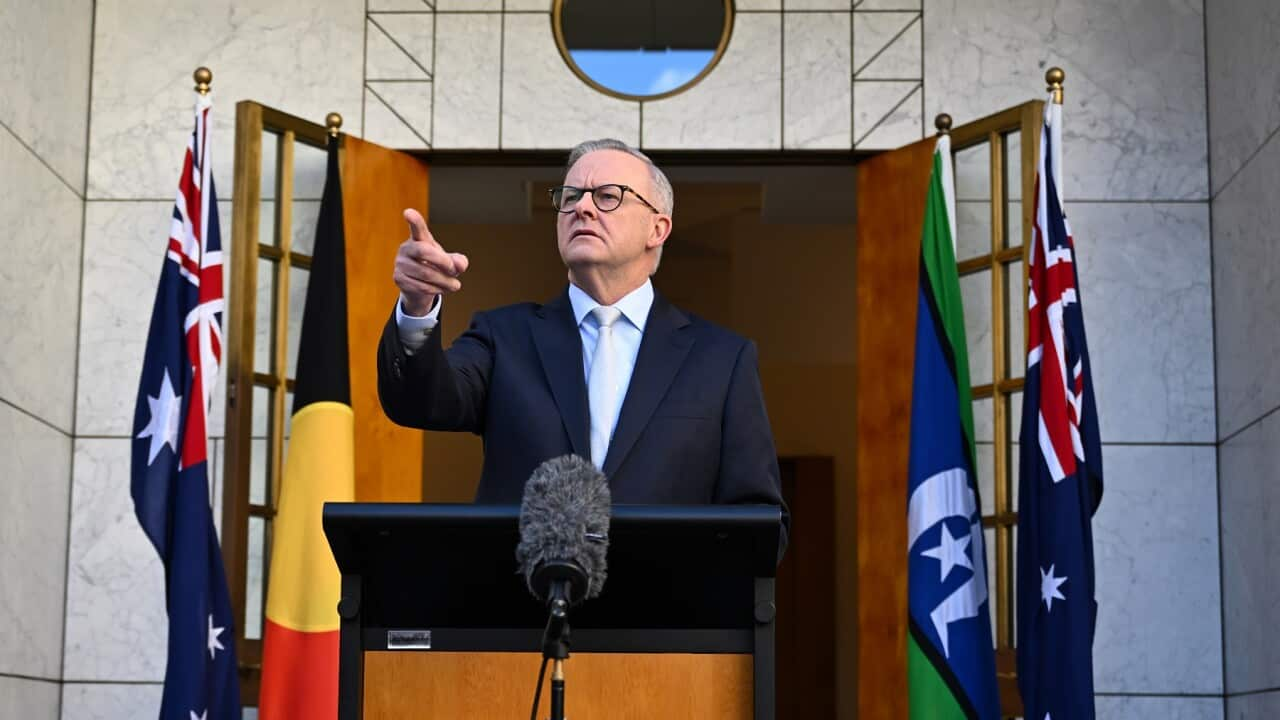TRANSCRIPT:
"They're wonderful people, and wonderful everything, but-"
That's US President Donald Trump talking about Australians in his announcement of a blanket 10 percent tariff on all Australian goods.
Mr Trump singled out local measures on American beef during his remarks.
"They ban American beef, yet we imported $3 billion of Australian beef from them just last year alone. They won't take any of our beef; they don't want it because they don't want it to affect their farmers. And you know what I don't blame them, but we're doing the same thing right now, starting about midnight tonight."
In Australia, beef imports from the U-S have been banned for years due to concerns about mad cow disease, and Prime Minister Anthony Albanese has said that is not about to change.
It's a sentiment echoed by National Farmers' Federation President, David Jochinke.
“Our biosecurity is not up for negotiation. We’re not going to be having any technical discussions about carving out any deals for any nation.”
Tariffs on pharmaceuticals have not been confirmed in this round of announcements, despite complaints from U-S companies because some prescription drugs are subsidised and made cheaper under the Pharmaceutical Benefits Scheme.
And some observers have said Australia has had a better result than many other countries, with some facing tariffs of up to 50 per cent.
Still, Anthony Albanese says he considers the tariffs a destructive move that will damage relations with the U-S.
"Let me be clear: they are totally unwarranted. President Trump referred to reciprocal tariffs. A reciprocal tariff would be zero, not 10 per cent. The administration's tariffs have no basis in logic and they go against the basis of our two nations' partnership. This is not the act of a friend."
Mr Albanese says his government will not hit back with reciprocal tariffs.
The Prime Minister says such measures would simply fire the gun on a race to the bottom that he believes would lead to higher prices and slower growth.
But he says the government has no intention of doing nothing.
"We will stand up for Australia. We will continue to make the strongest case for these unjustified tariffs to be removed from our exporters. Our existing free trade agreement with the United States contained dispute resolution mechanisms. We want to resolve this issue without resorting to using these."
Those dispute resolution mechanisms include the prospect of a complaint to the World Trade Organisation.
The Labor government says it has tried to negotiate with Donald Trump behind closed doors - and that this is a response being considered as no nation has succeeded in securing exemptions from this round of tariffs.
Opposition Leader Peter Dutton still says Mr Albanese could have tried harder to advance Australia's interests.
"I do believe that we could have achieved a different outcome. Firstly, I think there's no doubt that we would have had greater connection and greater communication with the White House."
The government had previously tried to strike a critical minerals deal with the U-S, as it sought to avoid an earlier round of 25 per cent tariffs on Australian steel and aluminium exports.
The proposition was rejected by the U-S, and Resources Minister Madeleine King said at the time she it was unlikely Australia would sweeten the offer any time soon.
Mr Dutton says the Coalition would have leveraged Australia's defence ties with the U-S to get the best deal at a globally uncertain time.
"There is an absolute deal to be done here if the prime minister had the strength of leadership and the ability to be able to do it, but he hasn't even spoken about the critical minerals or the defence element to the relationship. It's the most integral part of our relationship with the United States and we can leverage a much better outcome - if we had of been speaking with the Americans about this from January 20, or probably before that."
